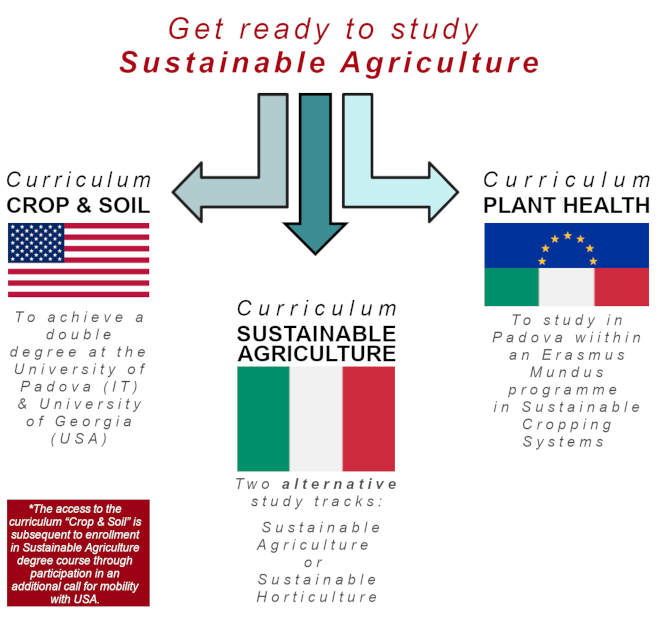Course outline and objectives

At this link you can find more detailed information about a.y. 2025/26
Sustainable Agriculture
You will learn how to improve the sustainability of farming systems, producing food and biomasses respecting the natural resources; you will also learn about the ecosystem services provided by agriculture for human well-being.
Integrated Management of Arthropod Pests
You will understand the concepts involved in the development and application of IPM strategies from pest control to pest management.
Precision Farming
You will acquire the basis for management of agricultural machineries in precision agriculture, knowing how to choose the modern information technologies to maximize the potential of this technique.
Advanced Statistics
You will understand how to select, conduct, and report appropriate statistics to test discrete and continuous variables.
Agricultural Management of Biogeochemical Cycles
You will study the natural and anthropic factors affecting biogeochemical cycles, and methods to mitigate agricultural pollution.
Soil Microbiology
You will get to know the roles and identities of the microbiological drivers of soil ecosystems and you will learn their relationships within the plant-microbe complex interplay.
Plant Breeding
You will understand how to evaluate and utilize for selection, the natural and artificial plant genetic variability.
Agrifood Economics and Policy
You will understand the macroeconomic functioning of a market economy and the tools regulating economic policies with special emphasis on the agricultural sector.
Sustainable Disease Management
You will understand how to integrate management practices to improve plant health and productivity by reducing the risk of disease epidemics and the use of fungicides.
Sustainable Viticulture and Woody Crop Production
You will acquire the ability to interpret, plan, and carry out the many technical operations applied to the vineyard, in the light of a thorough knowledge of the biology and physiology of the plant.
Sustainable Livestock Systems
You will first acquire the basic knowledge of how livestock systems are organized, and then develop the ability to evaluate their interactions with environmental impact, agro-ecosystems services and food production.
Water Resources Management
You will learn how to appropriately apply principles of hydraulics, soil hydraulic properties, and surface water hydrology to manage (also through GIS) the issues related to water resources management and land degradation.
Crop Physiology
You will acquire fundamental knowledge of shoot and root morphology and functioning of the main field crops to improve the productivity and sustainability of their cultivation.




